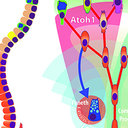Carotenoids and breast cancer risk: a meta-analysis and meta-regression.
Ключови думи
Резюме
The purpose of this article is to comprehensively summarize the associations between carotenoids and breast cancer and quantitatively estimate their dose-response relationships. We searched PubMed, Embase, and Cochrane databases (from January 1982 to 1 May 2011) and the references of the relevant articles in English with sufficient information to estimate relative risk or odds ratio and the 95% confidence intervals, and comparable categories of carotenoids. Two reviewers independently extracted data using a standardized form; with any discrepancy adjudicated by the third reviewer. 33 studies met the inclusion criteria. Comparing the highest with the lowest intake: dietary α-carotene intake significantly reduced the breast cancer risk by 9.0% (pooled RR = 0.91; 95% CI: 0.85-0.98; P = 0.01), dietary β-carotene intake reduced the risk by 6.0% (pooled RR = 0.94; 95% CI: 0.88-1.00; P = 0.05); total β-carotene intake reduced the risk by 5.0% (pooled RR = 0.95; 95% CI: 0.90-1.01; P = 0.08) when data from cohort studies were pooled. Significant dose-response relationships were observed in both the higher intake of dietary and total β-carotene with reduced breast cancer risk when data from cohort studies (P (trend) < 0.01, P (trend) = 0.03) and case-control studies (P (trend) < 0.01, P (trend) < 0.01) were pooled, respectively. Dietary α-carotene intake could reduce the breast cancer risk. The relationships between dietary and total β-carotene intake and breast cancer need to be confirmed. No significant association between dietary intake of β-cryptoxanthin, lutein/+zeaxanthin, and lycopene and breast cancer was observed.


